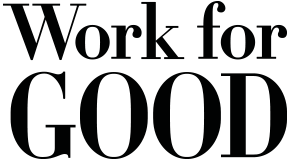What your remote-work resume needs
(Image: Bruno Emmanuelle)
Remote work comes with a number of perks, including no commute, more flexibility, fewer distractions, and heightened productivity. Like anything, however, working outside an office comes with its challenges, too. Think: loneliness, difficulty collaborating, and the dilemma one can face when trying to set healthy work-life boundaries.
In fact, many employers and remote employees might consider remote work a skill in itself. It takes a lot of focus, discipline, and strong communication to be an efficient and effective remote worker, and not everyone is cut out for it. If you're seeking a remote job opportunity, it's important to showcase your remote skills during the application process.
Employers want to know you're equipped to work from home, and there are several ways you can highlight this on your resume.
1. Make it known you're in the market for a remote job.
Although some job listings are obviously for remote roles, that won't always be the case. Sometimes companies will list their headquarters as the location and note that remote work is allowed. In other instances, companies might not mention remote work at all but will consider it as an option if you're qualified for the role.
Whatever the case, it's your job to make it clear in your application, cover letter, and resume that you're seeking a remote opportunity.
For example, resumes traditionally include at least the city and state of your address. It ups your legitimacy, and it sets employers' expectations – will they need to fly you in for an interview or offer a relocation stipend if you land the job? However, if you're applying for a remote position that doesn't have any specific location requirements, your physical address isn't as important.
Therefore, you have a few options: You can still list your physical address, you can leave it off, or you can simply state “remote” or “location independent” in the space instead.
Another area where you can highlight your desire to work remotely includes your professional summary. This is where you set your intent as a job applicant – and it's the perfect spot to mention your desire and ability to work remotely.
Also, if you've previously held remote positions, call those out in your work experience section by listing “remote” in place of the company's location.
2. Showcase the skills needed to work remotely.
Remote work takes a special set of skills, so you'll want to highlight those. An obvious place to do this is in the skills section on your resume. Think about both the technical and soft skills that make you a strong remote employee.
For example, as a remote team member, you'll need to be comfortable with video conferencing, messaging, and using team and project management tools. You can even list the specific programs you have experience using, like Slack, Zoom, Google Hangouts, Asana, or Wrike. If the company you're interviewing with uses the same tools, it'll likely put the employer at ease.
You'll also want to list important soft skills remote workers need to succeed. Use this general list to spark some inspiration:
- Time management
- Collaboration
- Digital communication
- Strong work ethic
- Adaptability
- Organization
- Self-starter
- Proactive
- Flexibility
- Tech-savvy
- Independent problem solver
- Reliable
3. Use your work experience to show off your relevant skills.
Updating your skills section is a more obvious way to highlight your remote work skills, but don't forget to sprinkle these into descriptions of your previous jobs – even if you haven't held a remote position yet.
If you've already worked as a remote employee, make this clear in your job descriptions. For example, if you are a remote account manager, you might write, “Managed partnerships with more than 25 clients through Salesforce from a dedicated home office.” If you're a remote writer, you might showcase your productivity by stating: “Exceeded company's annual quotas by producing more than 200 pieces of content, and was recognized as a top remote employee.”
If you haven't held a remote position yet, don't fret. You can still lean into the skills you have to prove you'll be an effective remote employee. For example, if you work for a bi-coastal company and frequently collaborate with your other location's office, make that clear. Perhaps you work with a roster of out-of-state clients; this is another opportunity to show you have strong digital communication skills.
You should also return to that list of soft skills and think about ways you've demonstrated them in your current or past positions. Show these off with quantitative examples (numbers, percentages, and dollar amounts) within your work experience if you want to stand out.
For more help
Not sure how to make your remote intentions clear or showcase your ability to operate remotely? You may want to consult a professional resume writer: From making sure your resume tells your best career story to guiding you during a career transition, resume writers are here to share their expertise so you can succeed.
This article originally appeared in a slightly different form on TopResume.
Carson Kohler is a contributing writer for TopResume and a full-time writer at The Penny Hoarder.
Automate your job search, simplify your life: Set up a job alert now.



